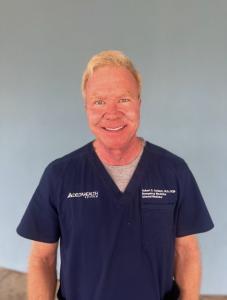Emergency Excellence: Dr. Robert Corkern’s Advanced Approaches to Critical Medical Care
Emergency Excellence: Dr. Robert Corkern’s Advanced Approaches to Critical Medical Care
Blog Article

When it comes to healthcare, many individuals frequently confuse disaster medicine with inner medicine. Equally are essential offices of medicine, however they serve very different functions in patient care. Dr Robert Corkern Mississippi, a distinguished medical specialist, describes the main element differences between both of these specialties, shedding gentle on their unique focuses and how each contributes to individual health. Understanding the variance between disaster medicine and central medicine can help patients greater understand their healthcare needs and produce informed decisions.
The Focus of Emergency Medication
Emergency medication was created to offer immediate, acute look after people experiencing urgent or deadly conditions. Crisis physicians perform in hospitals' disaster divisions (EDs), wherever they're usually the first level of contact for individuals experiencing significant accidents, strokes, center episodes, or other medical emergencies. Dr. Corkern highlights that crisis medicine is about stabilization and quick decision-making. Crisis physicians are qualified to handle a wide range of medical conditions, usually without having a detailed medical record of the individual, and must make rapid judgments predicated on confined information.
The primary goal of emergency medicine is to stop further damage, strengthen the individual, and initiate the right interventions. From trauma care to handling heart problems or strokes, emergency physicians are specialists in managing acute indicators and giving life-saving treatments in high-pressure environments.
The Position of Internal Medicine
In contrast, internal medication centers around diagnosing and controlling persistent diseases and problems that affect people, such as diabetes, hypertension, and center disease. Internal medicine specialists, or internists, assist patients around a lengthy time, giving comprehensive care and reduction strategies. Dr. Corkern describes that central medication is generally concerned with the whole-body administration of non-emergency medical issues. Internists usually serve as major treatment medical practioners, handling routine check-ups, handling continuous therapies, and coordinating look after patients with complex, long-term health issues.
While crisis physicians handle quick concerns, internists have a more holistic and long-term approach to individual health. They frequently work directly with specialists in areas like cardiology, pulmonology, and nephrology to manage persistent problems and make certain that patients obtain coordinated care for numerous wellness concerns.
Instruction and Approach to Attention
Dr. Corkern highlights the differences in working out necessary for both fields. Crisis medication requires physicians to be prepared for a wide spectrum of problems which could involve quick, life-saving interventions. Disaster doctors are experienced to handle injury, important illness, and intense exacerbations of serious conditions. This instruction requires a heavy concentrate on acute care and advanced life-saving procedures, usually in high-stress environments.
On the other give, inner medication physicians undergo intensive training in the avoidance, analysis, and therapy of chronic conditions. They concentrate on giving long-term treatment, usually controlling a patient's medical history and managing with other specialists. The internist's strategy is patient-centered, with an emphasis on long-term health maintenance and illness prevention.
When to Seek Emergency Medication or Internal Medication
Understanding when to find emergency medicine versus inner medication can make all of the big difference in the rate and type of care an individual receives. If you're experiencing a medical emergency, such as for example significant chest suffering, problem breathing, or unexpected lack of mind, the er is the right spot to go. However, for ongoing medical issues, chronic condition administration, or overall health preservation, an internal medicine specialist is normally the most effective level of contact.
Conclusion:
Equally disaster medicine and inner medication perform essential functions in patient treatment, but their techniques, focus areas, and instruction differ significantly. Dr Robert Corkern's description gives clarity on what these specialties function and when each is most relevant. By knowledge the distinctions, patients may greater navigate their healthcare wants and guarantee they are seeking the right form of care at the proper time. Whether experiencing a crisis or controlling a chronic issue, both specialists are essential in sustaining and increasing health.
Report this page